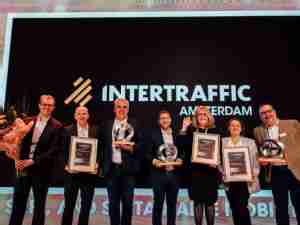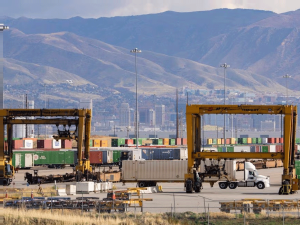In hard economic times, it is remarkable how management at companies of every size, type and description declare their businesses are "getting back to basics."' Not only do they assert their people are concentrating on the nuts and bolts of running a business, they are demanding vendors follow their example.' As the smooth, efficient, transportation of their product lines is a key ingredient in the success or failure of their selling efforts, with resultant'profit or loss on their balance sheets, logistics providers are caught right in their crosshairs.
What are the basics of transportation today, whether it be by air, ocean, truck or rail?' What do customers want from their vendors?
Customers' principal items on their wish lists include competitive pricing; delivery of goods on time and when promised; rapid, accurate transmission of information from vendor to customer and hassle-free transshipment of merchandise from pick-up on the loading dock to delivery at its final destination.
The mark of a successful forwarder like Mainfreight remains the same in good times and bad.' It is to offer the'shipper a compelling blend of personal service combined with high technology.' As economic conditions change, however, priorities must be modified to reflect these changes.
Of course, it is the successful freight forwarder who responds to the current needs of the shipper.' To offer the customer the kinds of services he may require.''In today's economic climate, however, technological hijinx become less important than the primary purpose of moving goods in a swift, expeditious manner.
Cargo people constantly are being targeted by consultants and self-described "experts" who write lengthy, techo-babble articles on the complexities of logistics.' These articles, doubtless well intentioned, generally are useless. Shippers want hard and fast answers to their shipping needs, not academic theory.' In his thirty six years as a freight forwarder and customs broker, Chris Coppersmith, President of the US division of Mainfreight, never has been asked, "is your company a total logistics provider offering seamless supply chain management services?"' Yet, Coppersmith has been asked countless times, "what is your price?" and'"what kinds of services do you provide?"
In a softer economic climate, no one is safe.' The very large international forwarders, who disdained small shipper business in the past, now compete vigorously for it.' National trucking firms who traditionally have emphasized full load shipments now fight for less than truckload (LTL business against smaller, regional carriers.' The package express companies, who once scorned any shipments less profitable than overnight deliveries of high value packages and documents by air, now eagerly accept low value, slower ground freight of any weight and type.
In a harsher economic climate, we forwarders require a change in our mindset.' We need more shoe leather and less preoccupation with the Internet.' More sales calls and less time looking at computer screens.' Our business is people, not computers.' Never has there been a better time than today to emphasize that'truism to our customers.
In these currently tough times, despite our best efforts, some attrition in business among existing customers will occur.' Success or failure in'capturing new business may well mean the difference between a viable company and a barely breathing one.' Even in good times, our industry has not been particularly successful in attracting customers who neither use at all or just utilize it sparingly.' We have been too occupied with soliciting business'from each other rather than attracting new shippers to air.' We seem content to generate only a two per cent share of all domestic freight and four per cent of international cargo.' These percentages have not changed in thirty years.
As an industry, we must do nothing less









